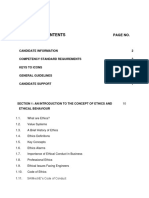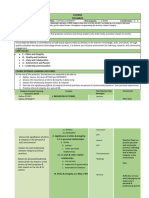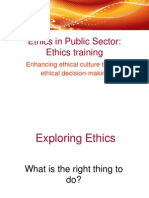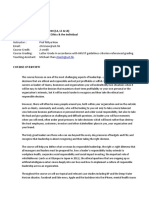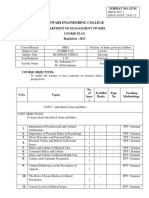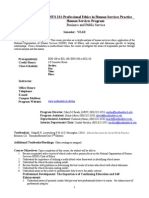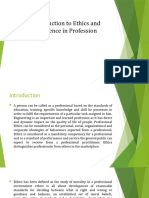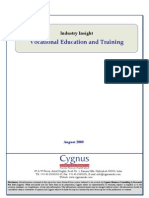0% found this document useful (0 votes)
18 views5 pagesEthics Course Overview
This document provides an overview of an online ethics course for public servants in South Africa. The course aims to help build an ethical culture by assisting participants to reflect on their values, recognize ethical dilemmas, apply ethical standards, and promote ethics in the workplace. It consists of learning materials and activities to be completed at each participant's own pace over approximately 16 hours.
Uploaded by
dreamerdee600Copyright
© © All Rights Reserved
We take content rights seriously. If you suspect this is your content, claim it here.
Available Formats
Download as PDF, TXT or read online on Scribd
0% found this document useful (0 votes)
18 views5 pagesEthics Course Overview
This document provides an overview of an online ethics course for public servants in South Africa. The course aims to help build an ethical culture by assisting participants to reflect on their values, recognize ethical dilemmas, apply ethical standards, and promote ethics in the workplace. It consists of learning materials and activities to be completed at each participant's own pace over approximately 16 hours.
Uploaded by
dreamerdee600Copyright
© © All Rights Reserved
We take content rights seriously. If you suspect this is your content, claim it here.
Available Formats
Download as PDF, TXT or read online on Scribd
/ 5



